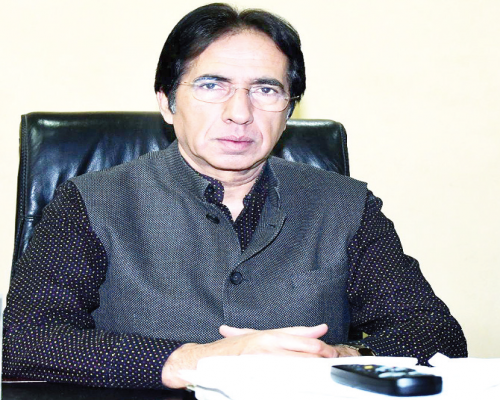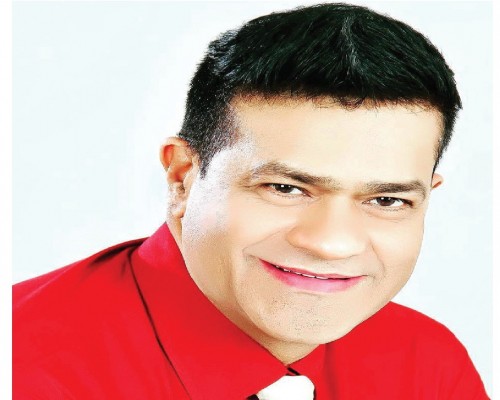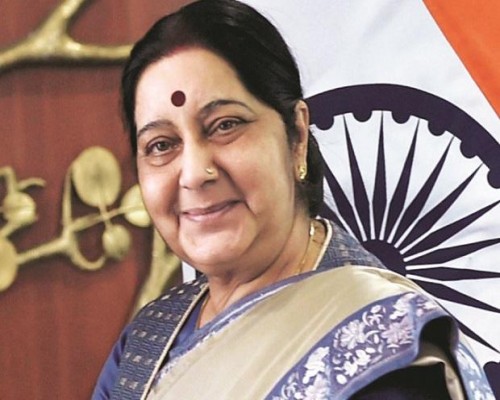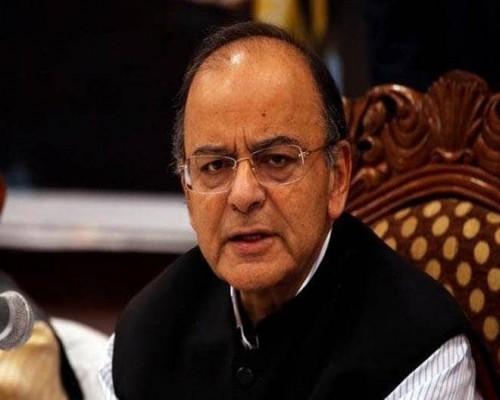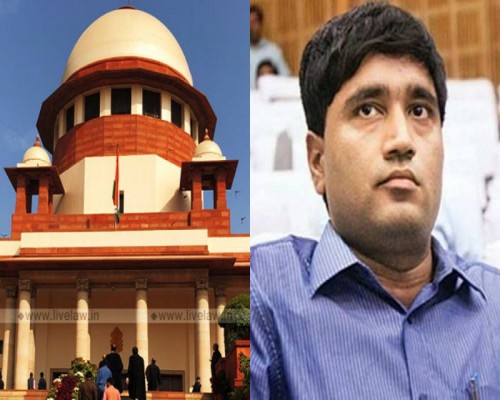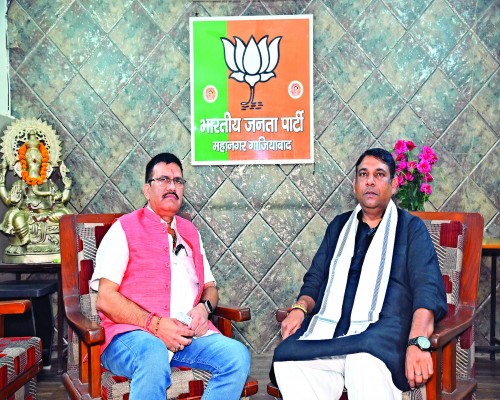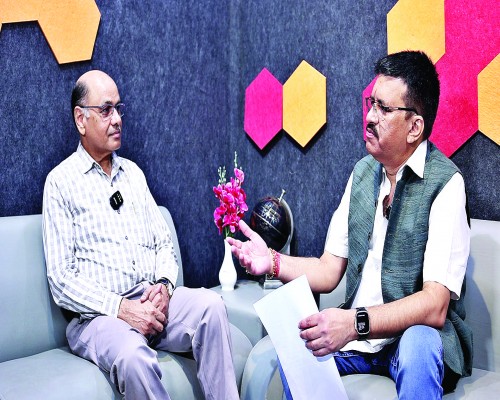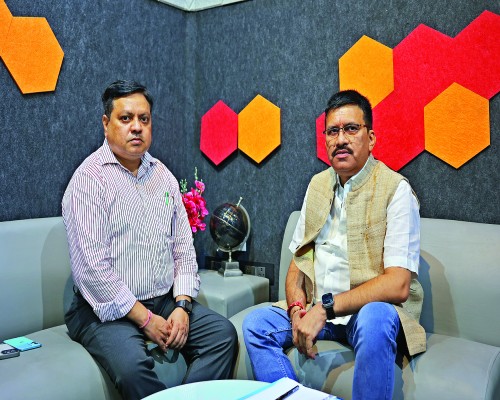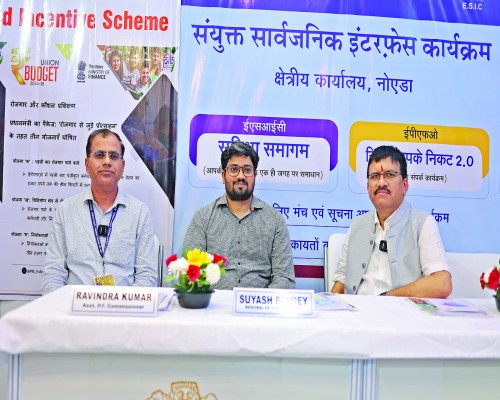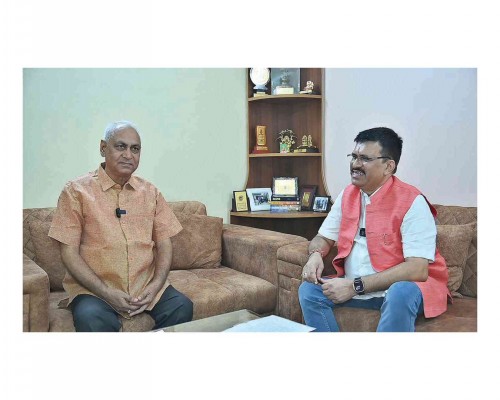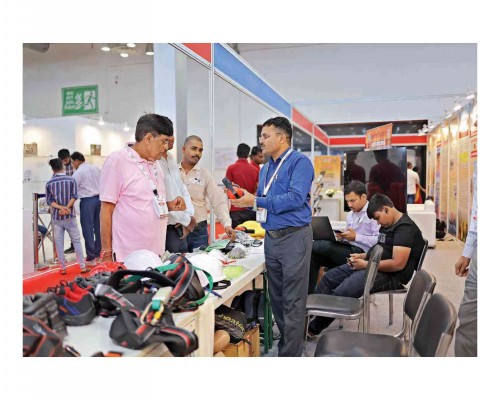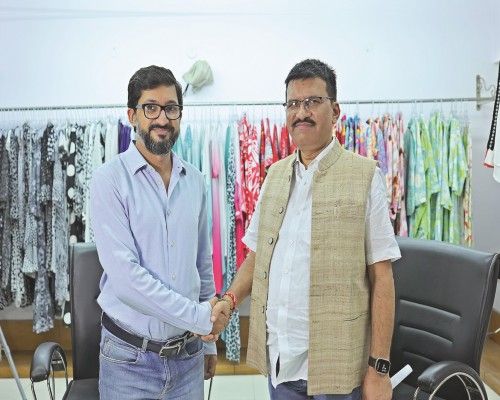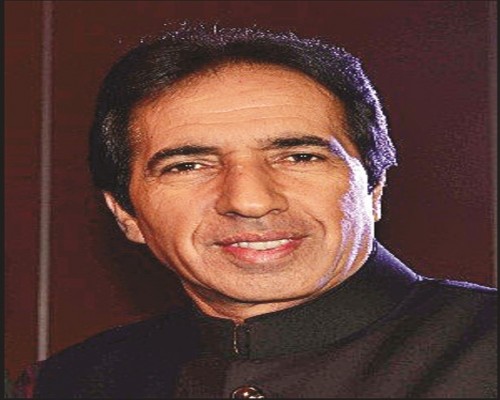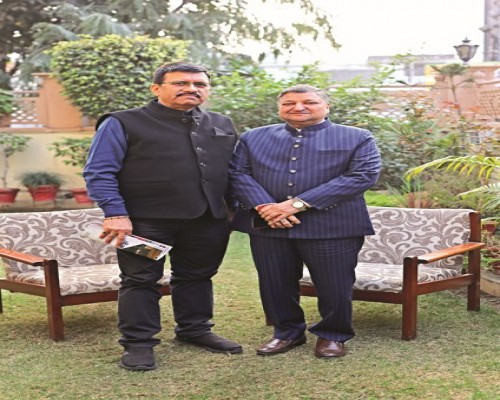"Empowering Noida's Apparel Industry: In Conversation with Lalit Thukral, Champion of the City of Apparel"
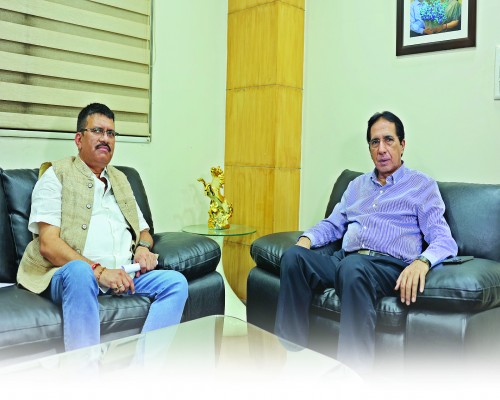
Shri Lalit Thukral, the Chairman of the Noida Apparel Export Cluster (NAEC), is a key figure in Noida's evolution into the esteemed 'City of Apparel'. His collaborative efforts with the government and the Honorable Chief Minister Shri Yogi Adityanath have been instrumental in this achievement.
During an interview with UV India News, Lalit Thukral shared insights into his association's work and the government's expectations of it regarding supporting the apparel export industry.
Satendra Singh: Mr. Thukral, can you explain the Noida Apparel Export Cluster (NAEC) and how you work towards its goals?
Lalit Thukral: The Noida Apparel Export Cluster represents the garment industry. In Noida, we have around 4,000 top-tier factories. Exports from Gautam Buddha Nagar exceed ₹40,000 crore annually, and the district produces goods worth ₹10,000 crore each year. Approximately one million people are directly and indirectly associated with this industry. Under the visionary 'One District One Product' scheme, part of the Honorable Chief Minister's plan, Noida has been recognised as the 'City of Apparel' due to its significant export volume, garment production, and substantial foreign exchange inflow.
Our current focus is on the development of an Apparel Park on the Yamuna Expressway. With possession secured and construction underway, we anticipate a significant boost in exports by ₹10,000 crore and the creation of employment opportunities for 300,000 women within the next one to two years. This initiative is a testament to our industry's potential for growth and prosperity.
Satendra Singh: Considering your industry employs women and other labourers, how does your association guide and educate its members on complying with labour laws?
Lalit Thukral: Companies in the export line work with significant stores, all of which require compliance. We ensure compliance by providing minimum wages, ESIC, PF, and other benefits. How can we sustain our operations if we don't care for our labourers? We do everything possible to support them. For instance, companies often cover their treatment costs privately if a worker is not receiving adequate treatment for an illness. Our industry workers are like family to us; many know me personally. Even if someone who hasn't worked with us for years approaches me for help, I assist them in whatever way I can.
Satendra Singh: Since you mentioned that your industry predominantly employs women, do all your companies have IC committees?
Lalit Thukral: Every company within our cluster fully complies with the regulations, including forming IC (Internal Complaints) committees. There are various committees specifically for women, and we practice this diligently. Women form a significant part of our workforce, and we must ensure their well-being.
Satendra Singh: As the apparel industry in Noida has been recognised as the "City of Apparel," what further support or facilities does the government need to boost your industry?
Lalit Thukral: While the government provides us with all sorts of support, there are some areas where additional attention could help our industry grow significantly. For example, our industry contributes to exports worth ₹1.6 trillion, with ₹40,000-50,000 crore coming from large players and around ₹1.2 trillion from MSMEs. However, MSMEs often don't receive the full benefits. If the government supports MSMEs through bank cooperation and credit limits, they can double their output, boosting exports from ₹1.2 trillion to ₹2.4 trillion. We've been stuck at 15 billion for years, while Bangladesh, which was at 10 billion, has grown to 50 billion in a decade.
MSMEs are the backbone of employment, and with the proper support, they can significantly uplift our garment industry. If the government launches schemes enabling MSMEs to scale up their businesses, our industry could reach 29 billion by 2030. This sector is critical for job creation, women's empowerment, and economic growth.
Satendra Singh: You mentioned Bangladesh earlier. Why is Bangladesh's apparel industry ahead of ours?
Lalit Thukral: Bangladesh has Foreign Trade Agreements (FTAs) that India does not. When Bangladesh exports goods, they are exempt from duties of 10-12%, while Indian exports face these charges. Additionally, labour is cheaper in Bangladesh, and Bangladesh's economy heavily relies on garments. Bangladesh also imports a significant amount of high-quality yarn and fabric from India, processes it, and exports it at a lower cost due to these exemptions. However, India has its unique strengths, particularly in fashion and design, which are unmatched. With further improvements, we can enhance our position globally.
Satendra Singh: Regarding skill development, what steps is your association taking to train workers in your industry?
Lalit Thukral: Skill development is a crucial aspect. Many workers in our industry have never received formal training but are skilled through experience. To address this, the Noida Apparel Export Cluster is launching a portal next week called "Skill Ganga," which will offer courses focused on skill development. This portal will provide training and job opportunities. For example, if an employer needs 1,000 tailors or 50 supervisors, they can specify their requirements on the portal. If we have 500 qualified candidates, they will be sent with certification to fill the positions. Those not yet qualified will receive training through our institutions. This initiative will meet the industry's needs, and workers will receive the necessary training quickly, maintaining production efficiency.
Satendra Singh: What is the expected timeline for completing the Apparel Park on the Yamuna Expressway?
Lalit Thukral: There were some delays due to land possession issues involving farmers, but those have been largely resolved, and many sites are now under construction. I expect that full-scale production will commence within one to two years.
Satendra Singh: Is there a message you want to share regarding how your association can benefit its members?
Lalit Thukral: Beyond business, sustainability is critical. Our cluster is planting trees, particularly fruit trees, along different roads, enhancing the environment and providing free fruits to workers. Birds will also find habitats here. We need to think outside the box for labour welfare, and I've already requested the government to create living arrangements for workers, such as dormitory-style housing or permanent flats. During the pandemic, when many labourers left, significant challenges were created. While the government supported us, we still faced limitations. Therefore, sustainable living arrangements for workers would be highly beneficial.
Satendra Singh: Thank you very much for your time.




